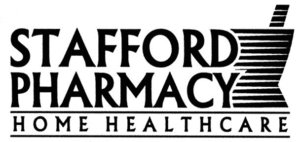Niacin (Vitamin B3) is a water soluble B vitamin found in meat, beans, cereal grains, fish and other niacin fortified foods. In the early 20th century, niacin deficiency (Pellagra) was common. Symptoms of niacin deficiency include dermatitis, diarrhea and dementia. Many foods are fortified with niacin, virtually eliminating niacin deficiency in developed countries.
In high therapeutic doses, niacin is currently used to decrease Triglycerides and LDL-Cholesterol (bad cholesterol) as well as increase HDL-cholesterol (good cholesterol). Niacin should only be used at high doses if recommended by a health care professional. Niacin must be started at a low dose and slowly increased as it can lead to flushing, burning, tingling and sometimes pain without slow dose increases. At Stafford Pharmacy we recommend Metagenics Niatain®. This formulation is an extended release formulation which minimizes many of the side effects of niacin.
If niacin has been recommended to help lower Triglycerides or LDL-Cholesterol, be cautious when purchasing the so called “no-flush” niacin. This “no-flush” niacin sometimes contains a different form of niacin, known as niacinamide. This formulation does not have the same cholesterol lowering effect as niacin even though it is in fact a “no-flush” formulation.
There are some manufacturers who have combined inositol, with niacin in an attempt to reduce the flushing side effect. For many, this can be an effective formula for reducing or eliminating niacin’s nuisance side effects, without reducing the vitamin’s ability to lower triglycerides and LDL-Cholesterol.
Niacin should not be used in combination with other cholesterol lowering medications, as it can increase side effects. It may also interact with other medication. Always talk to your pharmacist before starting a vitamin or herbal supplement make sure that it is safe for you.


